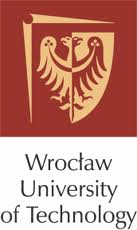C A L L F O R P A P E R S
The 1st International Workshop on ADVANCES in NATURE-INSPIRED
AUTONOMIC COMPUTING and NETWORKING (ANIACN 2012) in Conjunction with
The 4th Asian Conference on Intelligent Information and Database Systems(ACIIDS 2012) March 19 - 21, 2012 Kaohsiung, Taiwan
http://bit.kuas.edu.tw/~aciids12/index.html
To be published in ACIIDS 2012 LNCS/LNAI by Springer
INTRODUCTION
A new computing and networking paradigm is currently undergoing rapid advancements and emerging on the spot as one of the priority research areas: nature-inspired autonomic computing and networking (NIACN). In fact,
research activities on NIACN are recently booming, marked by the increasing developments of NIACN applications. NIACN is characterized by its self-* facets such as self-organization, self-configuration, self-healing, self-optimization, selfprotection and so on whose context-awareness used to dynamically control computing functions. The overarching goal of NIACN is to realize nature-inspired computing and networking systems (so-called autonomic systems), that can manage themselves without direct human interventions. Meeting this grand challenge of NIACN requires a rigorous interdisciplinary approach to nature-inspired computing and networking systems. To this end, in this invited session, we will present and discuss advances in NIACN through dissecting nature-inspired computing and networking systems taking advantage of formal engineering methods. Furthermore, in the field of NIACN, there exists a need for novel research results on properties of
nature-inspired computing and networking systems. All of these are to achieve firm formal foundations of NIACN.
GOAL
This invited session on ADVANCES in NATURE-INSPIRED AUTONOMIC COMPUTING and NETWORKING (ANIACN 2012) in conjunction with the ACIIDS 2012 conference is a place for highly original ideas about how NIACN is going to shape computing and networking systems of the future. Hence, it focuses on rigorous approaches and cutting-edge solutions which break new ground in dealing with the properties of nature-inspired computing and networking systems. Its purpose is to make a academic forum more accessible to researchers, scientists,
professionals and graduate students as well as developers and practitioners in computing science, especially in the area of computational intelligence by providing them with state-of-the-art research results and future opportunities and trends.
TARGET PARTICIPANTS
This session is organized for researchers, scientists, professionals and graduate students in computing science, especially in the area of computational intelligence as well as developers and practitioners in intelligent computing and networking systems design.
SCOPE
Original papers are solicited for this session. In particular, theoretical contributions should be formally stated and justified, and practical applications should be based on their firm formal basis. Suggested topics include, but are not limited to, the
following:
* Autonomic computing systems
* Software architectures for autonomic computing
* Resource sharing in autonomic networking* Autonomic middleware
* Self-optimization and self-awareness
* Autonomic grid systems
* Security and privacy in autonomic computing
* Security and Privacy in autonomic networking
* Architectures for autonomic networking
* Modeling autonomic networking and communications
* Integration models and protocols in autonomic computing
* Biologically inspired autonomic networking
* Autonomic communications
* Cognitive radio networks
* Autonomic pervasive systems
* Swarm intelligence in autonomic networking
* Autonomic models and systems for ad hoc networks
* Fundamental science of self-managing systems
* Autonomic computing and networking test-beds
* Autonomic pervasive communications
* Autonomic cognitive networks
* Autonomic storage and caching systems
* Performance analysis of autonomic systems
* Agents for autonomic computing
* Autonomic peer-to-peer systems
* Autonomic architecture for sensor systems
* Dynamic spectrum access
* Self-healing and self-protection in autonomic networks
* Active and programmable networks
SUBMISSION PROCEDURE
Prospective authors may check the Guidelines for Authors of LNCS/LNAI at http://bit.kuas.edu.tw/~aciids12/index.html. Submitted papers must not have been previously published or be currently under consideration for publication elsewhere.
All papers will be rigorously refereed. Complete papers in PDF format should be submitted to the organizer (email: pcvinh@ntt.edu.vn) before November 27, 2011 via email. The paper should be included as an email attachment or the author may provide a URL where the file can be downloaded. If a paper has co-authors then a
correspondence contact out of co-authors must be indicated. An acknowledgment of receipt of the paper will be provided within 24 hours of submission.
IMPORTANT DATES
Due date of initial submission: October 15, 2011
Notification of the submission : November 20, 2011
Due date of camera-ready paper submission: December 10, 2011
Due date of registration: December 10, 2011
Phan Cong Vinh, NTT University, Vietnam
PROGRAM COMMITTEE (The list is ordered by last names)
Jonathan Bowen, London South Bank University, UK
Radu Calinescu, University of Oxford, UK
Chin-Chen Chang, Feng Chia University, Taiwan
Mieso Denko, University of Guelph, Canada
Petre Dini, Cisco Systems, USA / Concordia University, Canada
Alois Ferscha, Johannes Kepler University Linz, Austria.
Jianhua Ma, Hosei University, Japan
Jong Hyuk Park, Seoul National University of Technology, South.Korea
Emil Vassev, University College Dublin, Ireland
Fatos Xhafa, Universitat Politècnica de Catalunya, Spain
Huibiao Zhu, East China Normal University, China
CONTACT
Inquiries and submissions can be forwarded electronically to:
Dr. Phan Cong Vinh , email: pcvinh@ntt.edu.vn





